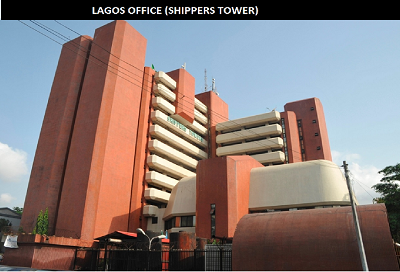NEWS LENS
CBN’s e-Invoice, e-Valuator Policy Contravenes CEMA – Amiwero
The President, National Council of Managing Director of Licensed Customs Agents (NCMDLCA), Lucky Amiwero, has described the introduction of the e-valuator and e-invoicing for import and export by the Central Bank of Nigeria (CBN) as a contravention of the Customs and Excise Management Act (CEMA).
Amiwero stated this in a letter addressed to the Governor of CBN, Godwin Emefiele, this week.
The industry expert argued that the new system is in breach of the Customs and Excise Management (amendment) Act 20 of 2003 on the valuation of goods, and the Customs and Excise Management Act C 45 of 2004 for the procedure of import regulation and export.
According to him, the valuation of goods in Nigeria, prescribed under CEMA 20 of 2003 (as amended), gave the power of treatment, process, procedures and determination of the valuation of goods under the Act based on the domestication of the agreement on World Trade Organisation (WTO) under the General Agreement on Trade and Tariff (GATT) Articles IIV.
Amiwero also argued that the power to give guidelines on import and export is domiciled with the Minister of Finance as prescribed in Section 36 and 57 of the Customs and Excise Management ACT C 45 of 2004.
He said these are the only legal instruments for the treatment, procedure, and application of imported goods in Nigeria, as well as the regulation of importation into the country by sea, air, and land borders.
He noted that going by these, there is no provision that gives the CBN power to alter the law on valuation of goods on import or the regulation on the procedure on the issuance of guidelines on import and export, especially when its main function is on monetary policy with regards to exchange rate.
Amiwero pointed out that the application of benchmark to importation and exportation contravenes the CEMA 20 of 2003 (as amended).
He said benchmarks are not acceptable as their treatment falls under the Brussel definition of value (BDV), which is outlawed globally.
The industry expert, however, called on the apex bank to ensure that the law is obeyed by withdrawing the circular, noting that if implemented, it will bring about duplication, as well as lengthy and cumbersome procedures in the nation’s import and export system, especially to those who are not experts on valuation, import and export procedures.
He also advised the apex bank not to duplicate the function of the Finance ministry and that of the Nigeria Customs Service on value procedures, determination, invoice, documentation, and electronic application.





